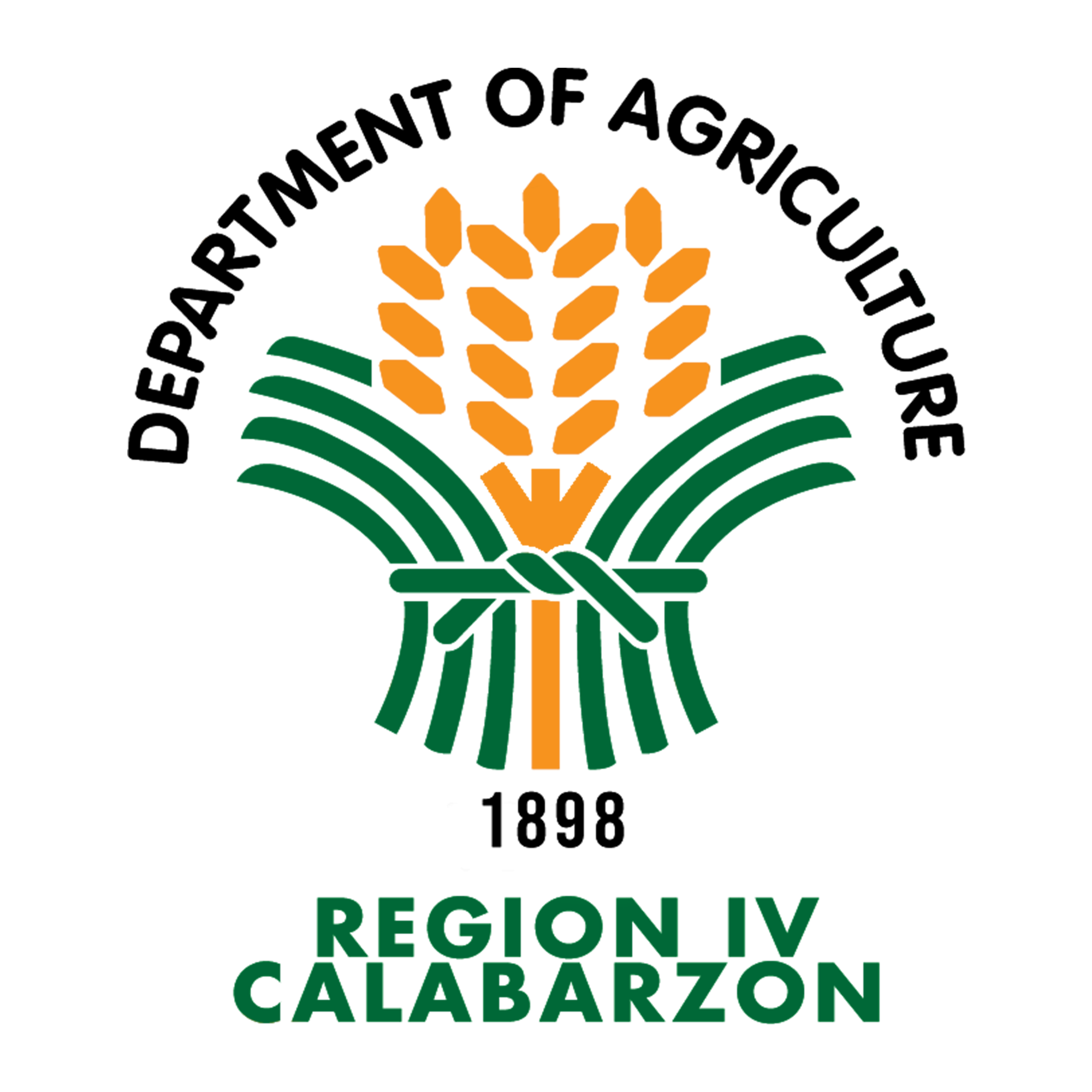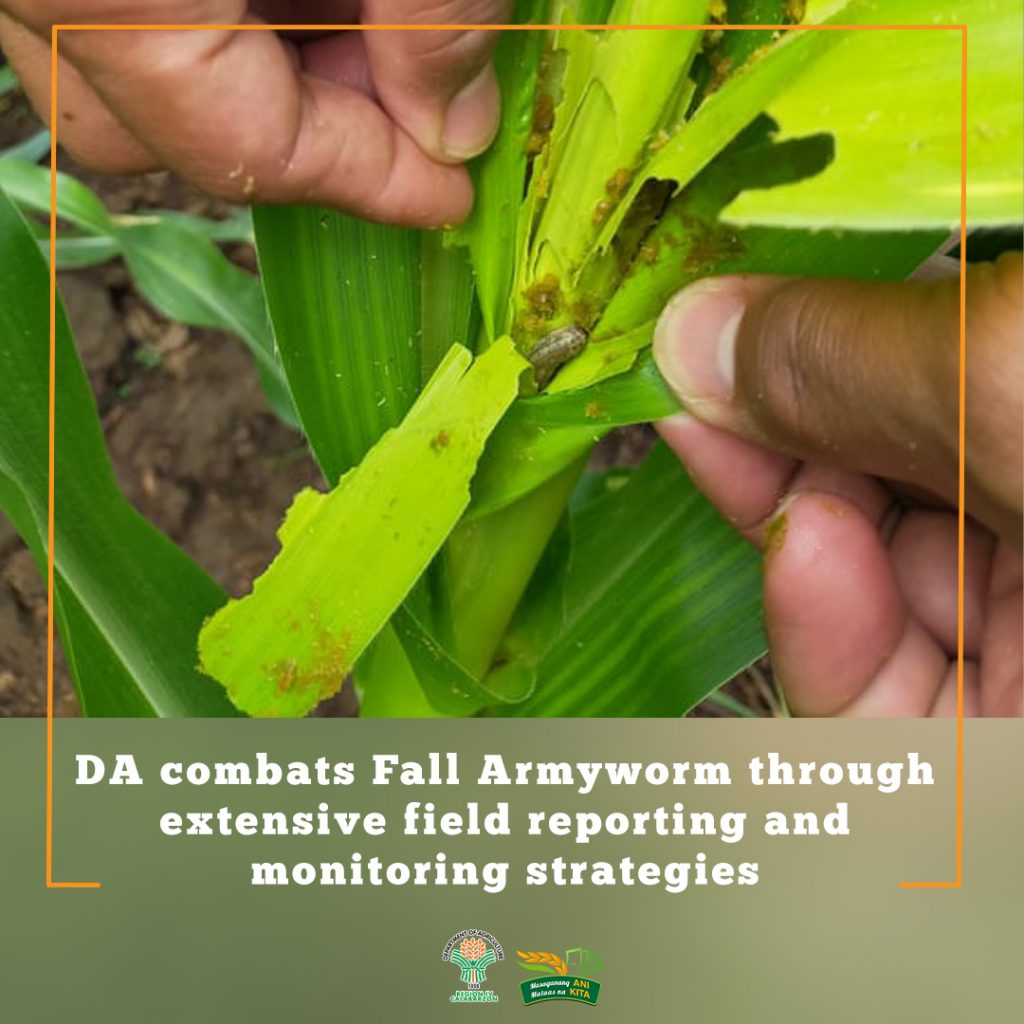Department of Agriculture (DA) Region IV-CALABARZON has stepped up measures to combat farm disruption and crop infestation caused by Fall Armyworm (FAW). With this, DA CALABARZON’s Regional Crop Protection Center (RCPC) was mobilized to conduct regular and extensive field reporting and monitoring strategies to mitigate FAW’s spread and damage.
FAW is a highly migratory pest known to infest crops globally, as it can travel at 100 kilometers per night across strong winds through continents and countries. It preys on the following crops: white corn, rice, adlay, sugarcane, cucurbits, sorghum, soybean, cotton, tobacco, and among other crops such as eggplant, tomato, pepper, and sweet potato.
The first FAW incidence in CALABARZON was reported on August 23, 2019 in Candelaria, Quezon which later entered the province of Cavite, Laguna, Batangas, and Rizal, covering a total of 17.73 percent area affected by the pest from August 23 to December 15, 2019, based on data given by the local government units (LGUs), FAW Action Team, Bureau of Plant Industry, and farmers. FAW’s incidence increased to the affected area of 35 percent, equivalent to 110.87 hectares of land, based on the current monitoring data from May to July 2020.
Given the FAW’s potential to inflict significant agricultural losses on staple crops in the region, DA has continued extensive field reporting and monitoring across the region through the province’s surveillance and monitoring team, and rapid action team, to evaluate the spread of the pest to be assessed for control measures such as identifying risk areas. Insecticides, i.e. chlorantraniliprole and cypermethrin, and biocontrol agents were given to these risk areas along with guided, technical advice required to control infestation and spread of FAW.
DA calls for the cooperation of all farmers, farmers’ groups, organizations, and LGUs to report any possible FAW signs among their plantation immediately. ● (SDAL, DA-RAFIS)







 All content is in the public domain unless otherwise stated.
All content is in the public domain unless otherwise stated.